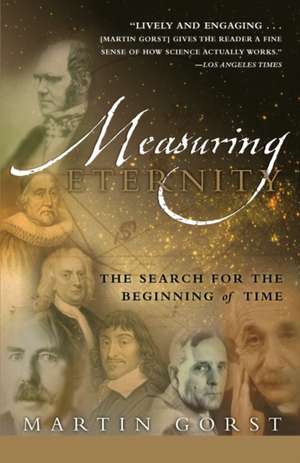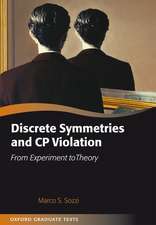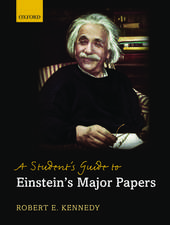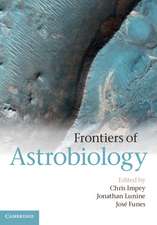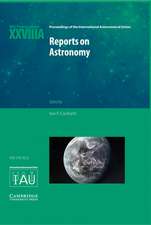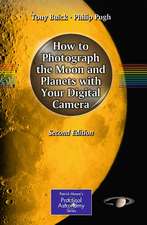Measuring Eternity: The Search for the Beginning of Time
Autor Martin Gorsten Limba Engleză Paperback – 31 oct 2002
The moment of the universe's conception is one of science's Holy Grails, investigated by some of the most brilliant and inquisitive minds across the ages. Few were more committed than Bishop James Ussher, who lost his sight during the fifty years it took him to compose his Annals of all known history, now famous only for one date: 4004 b.c. Ussher's date for the creation of the world was spectacularly inaccurate, but that didn't stop it from being so widely accepted that it was printed in early twentieth-century Bibles. As writer and documentary filmmaker Martin Gorst vividly illustrates in this captivating, character-driven narrative, theology let Ussher down just as it had thwarted Theophilus of Antioch and many before him. Geology was next to fail the test of time. In the eighteenth century, naturalist Comte de Buffon, working out the rate at which the earth was supposed to have cooled, came up with an age of 74,832 years, even though he suspected this was far too low. Biology then had a go in the hands of fossil hunter Johann Scheuchzer, who alleged to have found a specimen of a man drowned at the time of Noah's flood. Regrettably it was only the imprint of a large salamander.
And so science inched forward via Darwinism, thermodynamics, radioactivity, and, most recently, the astronomers at the controls of the Hubble space telescope, who put the beginning of time at 13.4 billion years ago (give or take a billion). Taking the reader into the laboratories and salons of scholars and scientists, visionaries and eccentrics, Measuring Eternity is an engagingly written account of an epic, often quixotic quest, of how individuals who dedicated their lives to solving an enduring mystery advanced our knowledge of the universe.
From the Hardcover edition.
Preț: 107.92 lei
Nou
Puncte Express: 162
Preț estimativ în valută:
20.65€ • 21.30$ • 17.23£
20.65€ • 21.30$ • 17.23£
Carte disponibilă
Livrare economică 05-19 martie
Preluare comenzi: 021 569.72.76
Specificații
ISBN-13: 9780767908443
ISBN-10: 0767908449
Pagini: 352
Ilustrații: 27 B/W ILLUSTRATIONS THROUGHOUT
Dimensiuni: 133 x 203 x 20 mm
Greutate: 0.26 kg
Editura: BROADWAY BOOKS
ISBN-10: 0767908449
Pagini: 352
Ilustrații: 27 B/W ILLUSTRATIONS THROUGHOUT
Dimensiuni: 133 x 203 x 20 mm
Greutate: 0.26 kg
Editura: BROADWAY BOOKS
Notă biografică
Martin Gorst is a writer and director of science documentaries for, among others Britian’s Channel 4 and the Discovery Channel. He lives in England.
From the Hardcover edition.
From the Hardcover edition.
Extras
1
In the Beginning
sometimes the past is nearer than you think. The other day, out of curiosity, I opened my grandmother's Bible, and there, printed alongside the opening verse of Genesis, was the date for the beginning of the world--4004 b.c. This came as a surprise. Not because I didn't know about the date--I did. It was devised by an Irish bishop called James Ussher in the early seventeenth century. No, what surprised me was that anyone should still be proclaiming this as fact as recently as the twentieth century. My grandmother's Bible was printed in 1901. Surely everyone knew by then that the world was far older than this?
I first came across Bishop Ussher's date about fifteen years ago, in a couple of science books written in the 1920s but reprinted in the thirties as those popular paperbacks you can still pick up for a few dollars secondhand. When I went back recently and reread them, what struck me was how seriously they treated what I had regarded as a totally improbable date. Nobody in the twentieth century, I assumed, could really have believed that the world was created--as Ussher maintained--at 6 p.m. on Saturday, October 22, 4004 b.c. Yet the passion with which the authors of these books attacked the date gave the appearance of a controversy that, although no longer red-hot, was nevertheless still sizzling. H. G. Wells, writing in 1922, referred to the date as "this fantastically precise misconception," based upon "rather arbitrary theological assumptions." The English geneticist J. B. S. Haldane, writing around the same time, was characteristically more strident: "we need not pay much attention to clergymen who protest their reverence for Scripture, and yet continue to use, or permit their flocks to use, bibles adorned with the conjectures of an Irish divine." There's no sign here of the mild amusement with which we view Ussher's date today. These words were the still-glowing embers of a once blazing debate--a debate that had been running since Ussher's dates first appeared in the Bible in the late seventeenth century, and that, in another form, still rages today. At its heart is an inquiry of great significance to both religion and science--the search for the beginning of time.
When did the universe begin? It is one of the simplest, yet one of the most fundamental questions humanity can ask. For the quest to measure the span of the world's existence is more than just an academic pursuit for an abstract figure; it is the point where science and belief merge or clash fatally. Once Ussher's date for the age of the world had been fixed in the pages of the Bible, and science had embarked on its relentless journey of inquiry, then, like a supertanker heading for a reef, collision was inevitable.
Like the famous debate over whether or not the Earth revolved around the sun, the search for the age of the universe was a search for truth. But in this case, the truth took longer to grasp. To begin with, the belief in a short-lived world was so deeply rooted that many of the earliest natural philosophers assumed their studies would confirm the biblical account--the truths of Scripture and the truths of nature, they believed, were one and the same. Only gradually did it become apparent that the world was far older than the Bible said it was. But even after they had accepted this, philosophers struggled to overcome their own preconceived ideas. As they pushed back the frontiers of time they became aware, with growing horror, of its awesome scale. The comforting spans of human experience were eclipsed by ages so enormous that the numbers themselves became inconceivable. Who could imagine a million years, let alone a billion? For some who peered into this abyss, the enormity of what they saw was too startling to reveal to the world; for others--those prepared to publish their results--the conclusions were often too astonishing for the world to comprehend.
As the search broadened from the close reality of the rocks beneath our feet to the distant arena of space above our heads, the evidence itself grew more remote, less graspable. A search that had begun with observations anyone could make relied, by the middle of the twentieth century, on observations of phenomena so small, or again so big, that they were invisible to the population as a whole. The closer science approached the "truth," the more remote and intangible it became.
When Wells and Haldane attacked Ussher's date in the 1920s, they knew that the universe was much older than the Bible said it was, but they were unable to put a figure on its age. In the last few years, however, science has taken a giant step toward solving this long-running mystery. New and more powerful telescopes, combined with the rapid processing power of modern computers, have enabled astronomers to make measurements that not so long ago they could only dream of. In 1998, for the first time, scientists obtained measurements of all the parameters required to find the universe's age. The search, it seems, may have reached its end.
The fact that there was a search at all, though, is due to Christianity. Two thousand years ago, the idea that the world might have a starting point was inconceivable. Almost all ancient civilizations believed that the universe had existed forever. From ancient Babylon to early India, the prevailing belief was in an eternal world. Nearly always this concept was combined with the idea of recurring cycles. Instead of having a beginning, time was thought to consist of endless eras, repeated over and over again for eternity. The idea probably grew from the repetitive motion of the heavenly bodies--the daily round of the sun, rising and setting; the monthly waxing and waning of the moon; the annual rotation of the constellations--which all recurred in an endless loop. By 1000 b.c., this idea of cyclic time had taken root in the Hindu faith, where the smallest cycle, the Maha Yuga, lasted 4,320,000 years. A thousand of these Maha Yugas made one Kalpa, and two Kalpas completed a single day in the life of Brahma, the chief Hindu deity. After this, the people were reincarnated and the cycle began again.
A similar view was held in ancient Greece. "Time is infinite and the universe eternal," proclaimed Aristotle in the fourth century b.c. Here, the length of cycle was determined by astronomy. Plato suggested that they lasted the period of time it took for all the planets to return to the same relative positions in their orbits that they had occupied at some earlier time. This span, estimated at 36,000 years, became known as the great year, or magnus annus, and later became popular in Rome. Here, among the many pagan faiths, astrologers promoted the idea of reincarnation, and the belief that the events of each cycle were repeated in the next. Because time in these cultures had no beginning, the idea of trying to find one simply didn't arise.
Throughout the ancient world there was just one civilization that didn't subscribe to this cyclic vision of eternity. Jewish scripture, with its story of the Creation, stated clearly that the world had a beginning, a first day when God created the heaven and the Earth. By the end of the first century a.d., Christianity had adopted this Jewish history as its own, and in the following centuries Christian missionaries spread the idea throughout the Roman world.
But the idea of everlasting cycles didn't die easily. At this time, the exact nature of the Creation as described in the Bible was unclear. Just because God had created the world, it didn't necessarily mean that this was the first time it had been created. In a culture dominated by a prevailing belief in an eternal universe, the story of the Creation could easily be viewed as just the beginning of a new cycle, another period of conflagration and rebirth. At the end of the fourth century a.d., therefore, there was still no reason to think that time had a beginning. The philosophical bridge between an eternal and a finite world had yet to be crossed.
The idea that time itself had a starting point grew out of a crisis for the Catholic Church. At midnight on August 24, a.d. 410, unknown hands opened Rome's Salarian gate from the inside, trumpets blasted and the Goth army, led by their chieftain Alaric, stormed the city. For three days they ransacked the imperial city of its gold, silver and jewelry--then they left.
When they heard the news, the people of the Roman world--which stretched all around the Mediterranean--reacted with shock. Rome the invincible, the capital of the Empire, the city that had not been captured in eight hundred years, had fallen. What could have caused such a calamity? The blame was laid on Christianity. For over seven hundred years, under the protection of the pagan gods, Rome had thrived. Now that the people had abandoned their old gods for Christianity, the gods in turn had abandoned the people. At the same time, the Christian god had failed to protect the city; surely, the people reasoned, this was a false god.
Across the Mediterranean in the North African town of Hippo, the accusations reached the ears of the local bishop, Aurelius Augustinus, known today as St. Augustine. Probably the greatest and most influential Christian thinker since St. Paul, Augustine realized that the Church faced a crisis. The pagan criticisms had hit their mark, and a wave of doubt had spread through the fledgling Christian community. To quell these doubts, he began writing The City of God, a book that would become a landmark in Christian thinking.
His first task was to calm the crisis. By pointing out that the Goths had left the Christian churches of Rome untouched--an act of clemency unprecedented in the history of warfare--he restored the credibility of his faith. But having countered the pagan attack, Augustine continued to expand and develop his arguments in support of Christianity. Over the next three years The City of God swelled to twenty-two volumes. Among the difficult questions he strove to clarify was whether or not the Creation truly marked the beginning of time.
For many reasons, Augustine could not accept the prevailing notion that time consisted of everlasting cycles. For a start, if life was predestined, comprising the repetition of events of a previous age, it denied the uniqueness of Jesus Christ. Second, if all one's actions could be put down to predestination, there would be no inducement to follow the good life prescribed by Christianity. And third, he found the popular notion that these cycles repeated themselves absurd. Were we expected to believe that:
just as in this age the philosopher Plato sat in the city of Athens and in the school called Academy teaching his pupils, so also through countless ages of the past at intervals both the same Plato and the same city and the same school and the same pupils have been repeated, as they are destined to be repeated through countless ages of the future. God forbid, I say, that we should swallow such nonsense!
In Christian philosophy, he maintained, the world could not be eternal. Pagan religions that adhered to cosmic cycles were "those argumentations whereby the infidel seeks to undermine our simple faith, dragging us from the straight road and compelling us to walk with him on the wheel." The creation of the world as described in the Bible, Augustine explained, was not the re-creation of a previous world, but the absolute beginning of everything. Before the world was created, time did not exist. God crated the world and time together. In other words, the world was not created at some moment in time, but simultaneously with it. In Christian philosophy, therefore, the question "What happened before God created the universe?" had no meaning. The moment of creation was the beginning of time. There still remained the question of what God did before he made the heaven and Earth. Sadly, Augustine did not answer this question, as is commonly reported, by saying that "He created Hell, for people who ask those kind of questions." He simply said that God "did nothing whatsoever."
With the success of The City of God, and the triumph of Christianity, the old notion of an eternal universe faded from European thought. As Christianity spread through Europe, and later out into the wider world, Augustine's great idea traveled with it. Instead of endless aeons stretching back for eternity, the world now had a starting point and, tantalizingly, the Bible even gave clues that its date could be measured. And so began the search for the beginning of time.
2The Bishop and the Book
as the morning of January 30, 1649, dawned over London, it brought with it a nervous buzz of anticipation. The previous day, workmen had erected a scaffold outside the Banqueting Hall in Whitehall and rumors of the imminent execution of the king had spread like wildfire through the city. In Charing Cross a group of servants and gentlemen climbed up to the frost-
covered roof of Lady Peterborough's house, from where they had a clear view of the scaffold and the expectant crowd surrounding it. Numbed by the bitter cold, and a dread of what they were about to witness, the men stood transfixed on the roof, waiting to see what would happen next.
Among the guests at Lady Peterborough's that day was an elderly Irish bishop, James Ussher. Tall, with long hair and a small gray beard neatly trimmed in the fashion of the day like the king's, Ussher brought a gentle dignity to the house. Unlike the other visitors, he was reluctant to climb up to the roof to watch the gruesome spectacle, for he had once been Charles I's chaplain, and had loyally accompanied the king through the tumult of the recent civil war. Now, at the age of sixty-nine, Ussher was virtually penniless, and for support relied largely on Lady Peterborough's benevolence. Thanks to her kindness, he was at last close to completing his life's work, The Annals of the World, a comprehensive history of ancient times, starting with the day of Creation and finishing in a.d. 70. It was an immense undertaking and an impressive piece of scholarship, drawing a linear thread from thousands of ancient books and manuscripts written in a multitude of different languages. It had taken over twenty years to write, but at last the first volumes were finished and would be published in London the following summer. Although the completed work stretches to 2,000 pages of densely printed Latin, Ussher's fame rests on a single paragraph featuring a single date--Saturday, October 22, 4004 b.c. According to him, on this day, at 6 o'clock in the afternoon, the world and time began.
Today, this unbelievably recent and precise date for the age of the universe is treated with derision and faint amusement, dismissed in popular accounts as the naive notion of a simplistic age. "That Eastern standard time? Or Rocky Mountain time?" asks Spencer Tracy, when a witness quotes Ussher's date in Inherit the Wind, the 1960 movie based on the famous 1925 "monkey trial" in Tennessee. Yet in Ussher's time, and for centuries after, the influence of his date was enormous. For nearly two hundred years, it was widely accepted as the true age of the world. It was printed in Bibles, copied into various almanacs and spread by missionaries to the four corners of the world. For generations it formed the cornerstone of the Bible-centered view of the universe that dominated Western thought until the time of Darwin. And even then, it lingered on. As recently as the early 1900s publishers still printed Bibles with "4004 b.c." inscribed alongside the opening verse of Genesis; while echoes of its influence persist to this day. In a 1999 Gallup poll, 47 percent of Americans said they believed that God had created human beings pretty much in their present form at one time within the last 10,000 years.
In the Beginning
sometimes the past is nearer than you think. The other day, out of curiosity, I opened my grandmother's Bible, and there, printed alongside the opening verse of Genesis, was the date for the beginning of the world--4004 b.c. This came as a surprise. Not because I didn't know about the date--I did. It was devised by an Irish bishop called James Ussher in the early seventeenth century. No, what surprised me was that anyone should still be proclaiming this as fact as recently as the twentieth century. My grandmother's Bible was printed in 1901. Surely everyone knew by then that the world was far older than this?
I first came across Bishop Ussher's date about fifteen years ago, in a couple of science books written in the 1920s but reprinted in the thirties as those popular paperbacks you can still pick up for a few dollars secondhand. When I went back recently and reread them, what struck me was how seriously they treated what I had regarded as a totally improbable date. Nobody in the twentieth century, I assumed, could really have believed that the world was created--as Ussher maintained--at 6 p.m. on Saturday, October 22, 4004 b.c. Yet the passion with which the authors of these books attacked the date gave the appearance of a controversy that, although no longer red-hot, was nevertheless still sizzling. H. G. Wells, writing in 1922, referred to the date as "this fantastically precise misconception," based upon "rather arbitrary theological assumptions." The English geneticist J. B. S. Haldane, writing around the same time, was characteristically more strident: "we need not pay much attention to clergymen who protest their reverence for Scripture, and yet continue to use, or permit their flocks to use, bibles adorned with the conjectures of an Irish divine." There's no sign here of the mild amusement with which we view Ussher's date today. These words were the still-glowing embers of a once blazing debate--a debate that had been running since Ussher's dates first appeared in the Bible in the late seventeenth century, and that, in another form, still rages today. At its heart is an inquiry of great significance to both religion and science--the search for the beginning of time.
When did the universe begin? It is one of the simplest, yet one of the most fundamental questions humanity can ask. For the quest to measure the span of the world's existence is more than just an academic pursuit for an abstract figure; it is the point where science and belief merge or clash fatally. Once Ussher's date for the age of the world had been fixed in the pages of the Bible, and science had embarked on its relentless journey of inquiry, then, like a supertanker heading for a reef, collision was inevitable.
Like the famous debate over whether or not the Earth revolved around the sun, the search for the age of the universe was a search for truth. But in this case, the truth took longer to grasp. To begin with, the belief in a short-lived world was so deeply rooted that many of the earliest natural philosophers assumed their studies would confirm the biblical account--the truths of Scripture and the truths of nature, they believed, were one and the same. Only gradually did it become apparent that the world was far older than the Bible said it was. But even after they had accepted this, philosophers struggled to overcome their own preconceived ideas. As they pushed back the frontiers of time they became aware, with growing horror, of its awesome scale. The comforting spans of human experience were eclipsed by ages so enormous that the numbers themselves became inconceivable. Who could imagine a million years, let alone a billion? For some who peered into this abyss, the enormity of what they saw was too startling to reveal to the world; for others--those prepared to publish their results--the conclusions were often too astonishing for the world to comprehend.
As the search broadened from the close reality of the rocks beneath our feet to the distant arena of space above our heads, the evidence itself grew more remote, less graspable. A search that had begun with observations anyone could make relied, by the middle of the twentieth century, on observations of phenomena so small, or again so big, that they were invisible to the population as a whole. The closer science approached the "truth," the more remote and intangible it became.
When Wells and Haldane attacked Ussher's date in the 1920s, they knew that the universe was much older than the Bible said it was, but they were unable to put a figure on its age. In the last few years, however, science has taken a giant step toward solving this long-running mystery. New and more powerful telescopes, combined with the rapid processing power of modern computers, have enabled astronomers to make measurements that not so long ago they could only dream of. In 1998, for the first time, scientists obtained measurements of all the parameters required to find the universe's age. The search, it seems, may have reached its end.
The fact that there was a search at all, though, is due to Christianity. Two thousand years ago, the idea that the world might have a starting point was inconceivable. Almost all ancient civilizations believed that the universe had existed forever. From ancient Babylon to early India, the prevailing belief was in an eternal world. Nearly always this concept was combined with the idea of recurring cycles. Instead of having a beginning, time was thought to consist of endless eras, repeated over and over again for eternity. The idea probably grew from the repetitive motion of the heavenly bodies--the daily round of the sun, rising and setting; the monthly waxing and waning of the moon; the annual rotation of the constellations--which all recurred in an endless loop. By 1000 b.c., this idea of cyclic time had taken root in the Hindu faith, where the smallest cycle, the Maha Yuga, lasted 4,320,000 years. A thousand of these Maha Yugas made one Kalpa, and two Kalpas completed a single day in the life of Brahma, the chief Hindu deity. After this, the people were reincarnated and the cycle began again.
A similar view was held in ancient Greece. "Time is infinite and the universe eternal," proclaimed Aristotle in the fourth century b.c. Here, the length of cycle was determined by astronomy. Plato suggested that they lasted the period of time it took for all the planets to return to the same relative positions in their orbits that they had occupied at some earlier time. This span, estimated at 36,000 years, became known as the great year, or magnus annus, and later became popular in Rome. Here, among the many pagan faiths, astrologers promoted the idea of reincarnation, and the belief that the events of each cycle were repeated in the next. Because time in these cultures had no beginning, the idea of trying to find one simply didn't arise.
Throughout the ancient world there was just one civilization that didn't subscribe to this cyclic vision of eternity. Jewish scripture, with its story of the Creation, stated clearly that the world had a beginning, a first day when God created the heaven and the Earth. By the end of the first century a.d., Christianity had adopted this Jewish history as its own, and in the following centuries Christian missionaries spread the idea throughout the Roman world.
But the idea of everlasting cycles didn't die easily. At this time, the exact nature of the Creation as described in the Bible was unclear. Just because God had created the world, it didn't necessarily mean that this was the first time it had been created. In a culture dominated by a prevailing belief in an eternal universe, the story of the Creation could easily be viewed as just the beginning of a new cycle, another period of conflagration and rebirth. At the end of the fourth century a.d., therefore, there was still no reason to think that time had a beginning. The philosophical bridge between an eternal and a finite world had yet to be crossed.
The idea that time itself had a starting point grew out of a crisis for the Catholic Church. At midnight on August 24, a.d. 410, unknown hands opened Rome's Salarian gate from the inside, trumpets blasted and the Goth army, led by their chieftain Alaric, stormed the city. For three days they ransacked the imperial city of its gold, silver and jewelry--then they left.
When they heard the news, the people of the Roman world--which stretched all around the Mediterranean--reacted with shock. Rome the invincible, the capital of the Empire, the city that had not been captured in eight hundred years, had fallen. What could have caused such a calamity? The blame was laid on Christianity. For over seven hundred years, under the protection of the pagan gods, Rome had thrived. Now that the people had abandoned their old gods for Christianity, the gods in turn had abandoned the people. At the same time, the Christian god had failed to protect the city; surely, the people reasoned, this was a false god.
Across the Mediterranean in the North African town of Hippo, the accusations reached the ears of the local bishop, Aurelius Augustinus, known today as St. Augustine. Probably the greatest and most influential Christian thinker since St. Paul, Augustine realized that the Church faced a crisis. The pagan criticisms had hit their mark, and a wave of doubt had spread through the fledgling Christian community. To quell these doubts, he began writing The City of God, a book that would become a landmark in Christian thinking.
His first task was to calm the crisis. By pointing out that the Goths had left the Christian churches of Rome untouched--an act of clemency unprecedented in the history of warfare--he restored the credibility of his faith. But having countered the pagan attack, Augustine continued to expand and develop his arguments in support of Christianity. Over the next three years The City of God swelled to twenty-two volumes. Among the difficult questions he strove to clarify was whether or not the Creation truly marked the beginning of time.
For many reasons, Augustine could not accept the prevailing notion that time consisted of everlasting cycles. For a start, if life was predestined, comprising the repetition of events of a previous age, it denied the uniqueness of Jesus Christ. Second, if all one's actions could be put down to predestination, there would be no inducement to follow the good life prescribed by Christianity. And third, he found the popular notion that these cycles repeated themselves absurd. Were we expected to believe that:
just as in this age the philosopher Plato sat in the city of Athens and in the school called Academy teaching his pupils, so also through countless ages of the past at intervals both the same Plato and the same city and the same school and the same pupils have been repeated, as they are destined to be repeated through countless ages of the future. God forbid, I say, that we should swallow such nonsense!
In Christian philosophy, he maintained, the world could not be eternal. Pagan religions that adhered to cosmic cycles were "those argumentations whereby the infidel seeks to undermine our simple faith, dragging us from the straight road and compelling us to walk with him on the wheel." The creation of the world as described in the Bible, Augustine explained, was not the re-creation of a previous world, but the absolute beginning of everything. Before the world was created, time did not exist. God crated the world and time together. In other words, the world was not created at some moment in time, but simultaneously with it. In Christian philosophy, therefore, the question "What happened before God created the universe?" had no meaning. The moment of creation was the beginning of time. There still remained the question of what God did before he made the heaven and Earth. Sadly, Augustine did not answer this question, as is commonly reported, by saying that "He created Hell, for people who ask those kind of questions." He simply said that God "did nothing whatsoever."
With the success of The City of God, and the triumph of Christianity, the old notion of an eternal universe faded from European thought. As Christianity spread through Europe, and later out into the wider world, Augustine's great idea traveled with it. Instead of endless aeons stretching back for eternity, the world now had a starting point and, tantalizingly, the Bible even gave clues that its date could be measured. And so began the search for the beginning of time.
2The Bishop and the Book
as the morning of January 30, 1649, dawned over London, it brought with it a nervous buzz of anticipation. The previous day, workmen had erected a scaffold outside the Banqueting Hall in Whitehall and rumors of the imminent execution of the king had spread like wildfire through the city. In Charing Cross a group of servants and gentlemen climbed up to the frost-
covered roof of Lady Peterborough's house, from where they had a clear view of the scaffold and the expectant crowd surrounding it. Numbed by the bitter cold, and a dread of what they were about to witness, the men stood transfixed on the roof, waiting to see what would happen next.
Among the guests at Lady Peterborough's that day was an elderly Irish bishop, James Ussher. Tall, with long hair and a small gray beard neatly trimmed in the fashion of the day like the king's, Ussher brought a gentle dignity to the house. Unlike the other visitors, he was reluctant to climb up to the roof to watch the gruesome spectacle, for he had once been Charles I's chaplain, and had loyally accompanied the king through the tumult of the recent civil war. Now, at the age of sixty-nine, Ussher was virtually penniless, and for support relied largely on Lady Peterborough's benevolence. Thanks to her kindness, he was at last close to completing his life's work, The Annals of the World, a comprehensive history of ancient times, starting with the day of Creation and finishing in a.d. 70. It was an immense undertaking and an impressive piece of scholarship, drawing a linear thread from thousands of ancient books and manuscripts written in a multitude of different languages. It had taken over twenty years to write, but at last the first volumes were finished and would be published in London the following summer. Although the completed work stretches to 2,000 pages of densely printed Latin, Ussher's fame rests on a single paragraph featuring a single date--Saturday, October 22, 4004 b.c. According to him, on this day, at 6 o'clock in the afternoon, the world and time began.
Today, this unbelievably recent and precise date for the age of the universe is treated with derision and faint amusement, dismissed in popular accounts as the naive notion of a simplistic age. "That Eastern standard time? Or Rocky Mountain time?" asks Spencer Tracy, when a witness quotes Ussher's date in Inherit the Wind, the 1960 movie based on the famous 1925 "monkey trial" in Tennessee. Yet in Ussher's time, and for centuries after, the influence of his date was enormous. For nearly two hundred years, it was widely accepted as the true age of the world. It was printed in Bibles, copied into various almanacs and spread by missionaries to the four corners of the world. For generations it formed the cornerstone of the Bible-centered view of the universe that dominated Western thought until the time of Darwin. And even then, it lingered on. As recently as the early 1900s publishers still printed Bibles with "4004 b.c." inscribed alongside the opening verse of Genesis; while echoes of its influence persist to this day. In a 1999 Gallup poll, 47 percent of Americans said they believed that God had created human beings pretty much in their present form at one time within the last 10,000 years.
